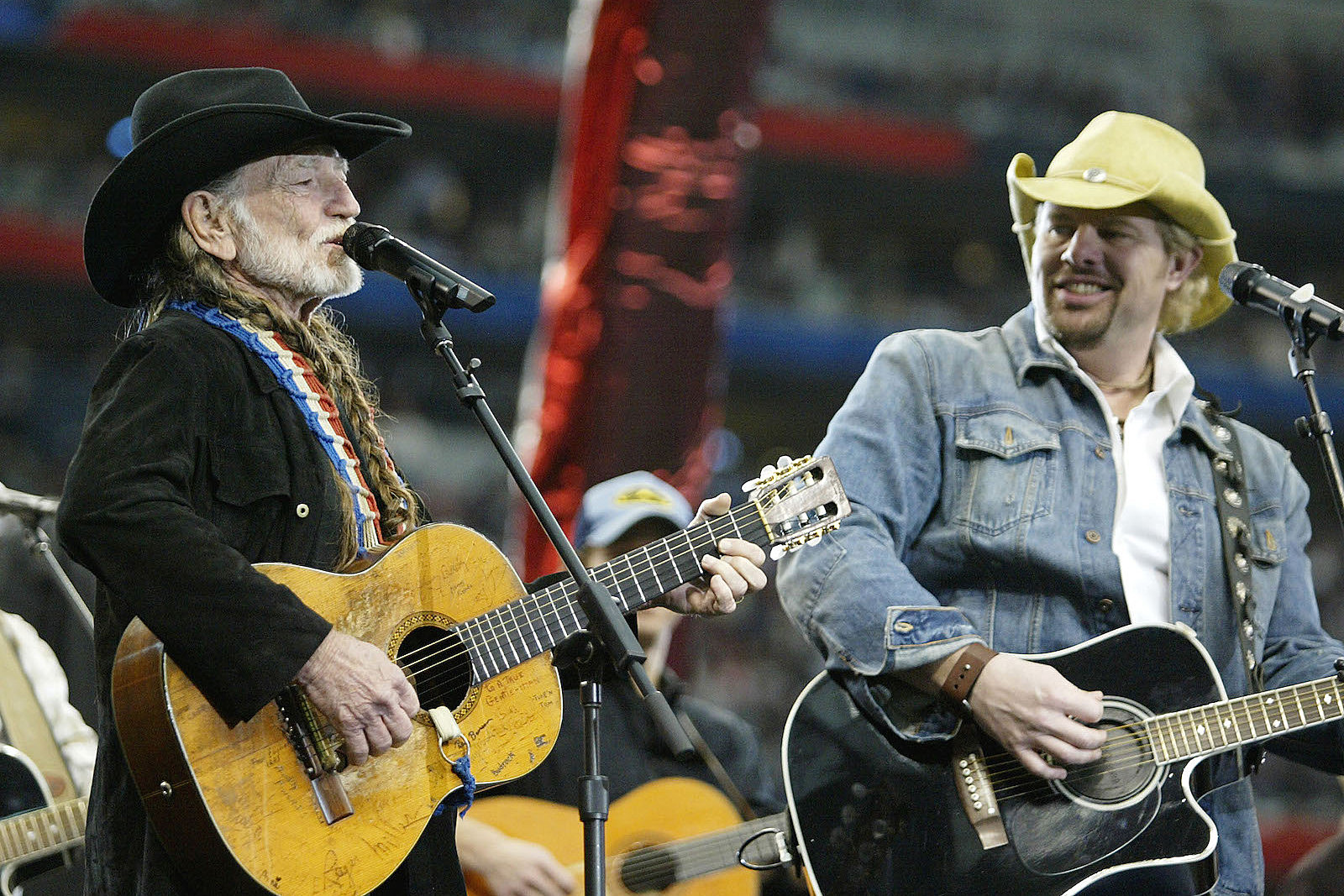
When Justice Rides the Range: The Enduring Call for Reckoning in a Troubled World
In the vast, resonant catalog of American country music, few anthems have captured the public imagination with such direct, unyielding force as Toby Keith and Willie Nelson‘s collaborative masterpiece, “Beer for My Horses”. Released as the fourth and final single from Keith‘s seventh studio album, the formidable Unleashed, on April 7, 2003, this powerful duet rapidly ascended the charts, becoming a cultural touchstone. It galloped to the coveted number one spot on the US Billboard Hot Country Songs chart, holding that position for an impressive six weeks, cementing its place as one of Keith‘s most successful singles. This landmark achievement also marked a significant milestone for Willie Nelson, becoming his twenty-third number one and, remarkably, making him the oldest artist at 70 to top the country charts at that time. Beyond its country dominance, the song demonstrated broad crossover appeal, reaching a notable peak of number 22 on the all-genre Billboard Hot 100, a career high for Keith at the time, and ultimately earning Platinum certification from the RIAA.
The genesis of “Beer for My Horses” is rooted in a vivid anecdote from Toby Keith‘s youth, a tale that speaks to the enduring allure of frontier justice. As Keith recounted, the indelible phrase “Whiskey for my men, beer for my horses” was a toast he heard from an old cowboy while working for a rodeo company as a boy. This simple, evocative line, imbued with the rugged spirit of the Old West, lingered in Keith‘s mind for years, awaiting its moment. When he and frequent collaborator Scotty Emerick began crafting the song, the timeless sentiment of that toast found its perfect narrative vessel. The core of “Beer for My Horses” is a raw, impassioned plea for accountability, a yearning for a time when wrongdoing was met with swift, unequivocal consequence. It laments the perceived failings of the modern judicial system, advocating for a return to a more direct, perhaps even primal, form of justice, where “a man had to answer for the wicked that he done.”
The song paints a picture of societal decay, where “too many gangsters doin’ dirty deeds, too much corruption and crime in the streets,” and proposes a bold, almost vigilante, solution: “It’s time the long arm of the law put a few more in the ground.” This stark lyrical imagery, while controversial to some, resonated deeply with many listeners who felt a similar frustration with the complexities and perceived inefficiencies of contemporary law enforcement. Keith envisioned a “big posse” riding out to set things right, a romanticized echo of the Western genre where heroes dispense justice with a decisive hand. The decision to invite Willie Nelson to join the track was a stroke of genius, born from Keith‘s recognition of the song’s inherent “Old West” sensibility. Nelson, with his legendary outlaw persona and deep roots in country music’s storied past, was the quintessential voice to deliver the “Texas verse,” lending an unparalleled authenticity to the narrative. According to Keith, Nelson was so captivated by the title alone that he agreed to the collaboration without even hearing the song, a testament to the evocative power of the phrase.
Remarkably, “Beer for My Horses” was penned prior to the tragic events of September 11th, 2001, yet its themes of swift justice and national resolve found an even deeper resonance in the post-9/11 landscape, tapping into a collective sentiment of defiance and a desire for retribution. The song’s impact extended beyond the airwaves, inspiring a 2008 film of the same name starring both Keith and Nelson, further solidifying its place in popular culture. While the film garnered mixed critical reception, it underscored the song’s potent narrative and its enduring appeal to an audience hungry for straightforward solutions in a world that often feels anything but. “Beer for My Horses” remains a powerful, if provocative, statement, a nostalgic look back at a simpler, albeit harsher, code of ethics, delivered with the unmistakable swagger of two country music titans. It’s a song that continues to stir the soul, prompting listeners to ponder the timeless question of how justice should best be served.